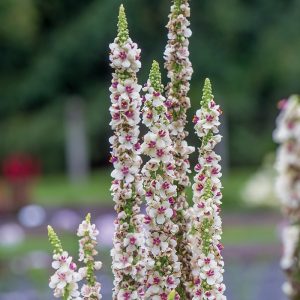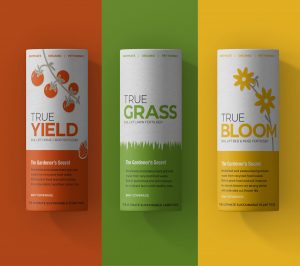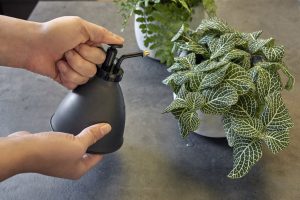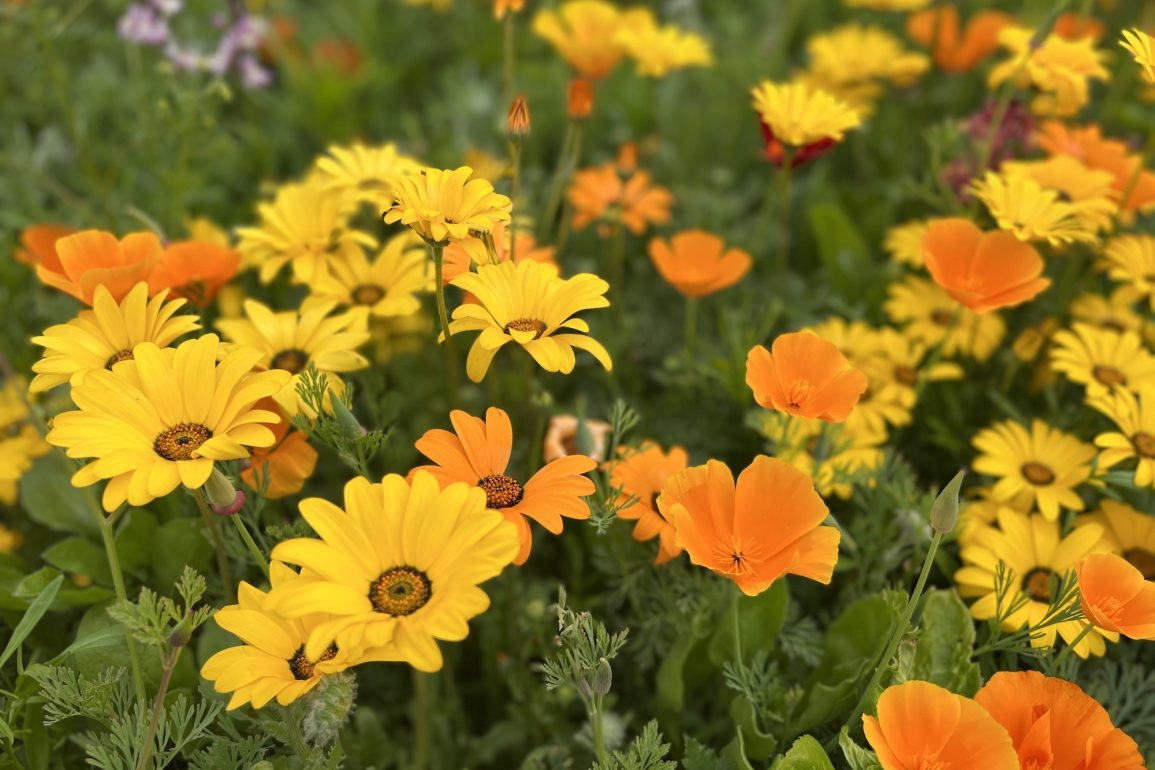Tips for your Eco Garden in June – June 21st is the longest day of the year and the extra light and warmth encourage your garden towards an exuberant burst of growth.
You will notice seedlings, shrubs, trees and flowers and of course those unwanted weeds will also sprout up from seemingly nowhere. I suggest keeping on top of them by hoeing regularly, whenever you have a spare moment.
How to make your garden an eco-garden.
Creating an eco (ecological) garden is a major step in helping the environment and in reducing your environmental footprint. Choose organic methods for amending the soil, irrigation, and controlling pests and weeds. It’s also important to plant native plant species when making an earth-friendly garden. Native species will thrive because they are naturally adapted to your climate and specific growing conditions. They require less water, fertilizer, and labour, and they benefit local wildlife by providing habitat and food.
You can create your own organic compost by recycling gardening waste, food waste, and fall leaves. Some of the most popular, everyday items from the household to find their way onto the compost heap include raw vegetables, crushed eggshells, fruit peelings, newspapers, cardboard and even tea bags.
By recycling this waste we will be helping to keep it out of the ever-increasing landfills and also will, in turn, create moisture retentive and rich compost or mulch that can be used around the garden. The plants will benefit hugely from this natural and organic addition to the soil and also will save you buying manure or compost the following year.
Add nutrients to the soil with natural remedies rather than chemical fertilizers. Consider using products like bone meal, blood meal, fish emulsion, and cottonseed meal along with your compost to amend the soil.
Plant trees in your eco-garden. Trees create wildlife habitat, provide shade, and improve air quality. For those of you who already have them, this is the time to thin out new shoots on trees and shrubs pruned in winter if necessary to prevent overcrowding.
Spread a mulch of compost or shredded bark around trees, shrubs, and roses when the soil is moist to help prevent moisture loss in the warmer weather.
Things to do…
Flowers – summer to many of us means the joy of outdoor entertaining. What can be more enchanting in the cool evening air than fragrant flowering plants?
Many perfumed plants are easy to grow and you can benefit from their attributes by adding a few in the garden around your patio, or even in pots and window boxes.
Perfumed flowers, whose essential oils may be lost to the heat of the day, come into their own early morning and when the sun goes down.
Spreading and trailing plants can become tatty and patchy quite quickly, I would suggest trimming them back after flowering, and this encourages fresh growth and new flowers.
Try to be water-wise whenever possible, especially in drought-affected areas and use collected rainwater, or recycled greywater.
Sow Some Seeds

Yes, there are still seeds that can be sown in June, and Burpee Europe has a couple of stunning varieties to share. Verbascum ‘Snowy Spires’ can be sown directly in the garden ideally in July and August. But if they have been sown indoors before June is the perfect time to plant them out. Echinacea ‘Sundress’ can be sown right up to early June, but again if it has been sown indoors before, this too can be planted out. Both are LOVED by pollinators so a real treat for all to enjoy!
Verbascum ‘Snowy Spires’ – seeds are available from Marshalls, Mr Fothergills, Dobies, Plants of Distinction, Nickys Nursery, Dt Browns
Freshen Up Your Chives
Chives are the perfect summer ingredient and if you cut them down low as you harvest them, they should grow again, almost like a cut and come again salad! Try Chive ‘Allion’ great perennial plants that will bring you years filled with delectable flavour. Each year the hardy plants unleash ever-larger crops of pungent, scrumptious onions. ‘Allion’s flat-leaf, chive-like greens are tasty when young. Come spring, pretty flowering plants show off blazing purple masses of fragrant (non-edible) vertical spikes.
Chive ‘Allion’ – seeds from = Otter Farm, Pennard Plants
Wildlife in your garden
Lawns provide a home for many insects that are eaten by birds and other wildlife. Those rich in organic matter are likely to have good numbers of earthworms – the staple winter and spring diet of song thrushes and much relished by blackbirds.
Any area of short grass will act as a feeding area for birds.
Longer grass provides shelter and egg-laying opportunities for the insects on which birds and other wildlife feed. Providing areas of grass of different heights, which are cut at different times of the year, optimises food potential.
Lawns can also provide seed for birds. Those of annual meadow grass, plantain, buttercup, and dandelion are particular favourites.
You can improve your lawn for birds and wildlife by simply avoiding the use of weed killers and artificial fertilisers, or go a step further and look at alternative ways to manage your lawn.
The Lawn Association is proud to introduce a new and exclusive, sustainable product range which is available via their online shop.


The ‘True Garden Range’ is a specifically designed fertiliser and soil conditioner range for domestic use. Formulated using composted food waste, this product will not only keep your plants happy and healthy but also your soils. The composted food waste creates stable humus, which is naturally high in organic matter, as well as rich in amino, humic, and fulvic acids and contains all the essential minerals, vitamins and N, P & K required to aid and increase the plant’s healthy growth, root development, disease resistance and overall function whilst also providing a food source for the beneficial microbes within your soils.


Houseplant care – just as your outdoor plants benefit from a drop of rain, your indoor plants could do with an all over refresh too. We have found the perfect gadget to make your plant care a little easier, the Industrial Plant Mister in galvanised black zinc from Kikkerland. Plants need water to survive, so, as well as your general watering gently misting some houseplants offer many benefits that will help them to thrive.
The air in our homes is generally dry, misting houseplants is a very simple and effective way to boost humidity as well as an easy solution to the risk of overwatering your plants.
Steer clear of misting plants with fuzzy leaves as their texture traps moisture, which can lead to rot and pests.
Lilly Light


